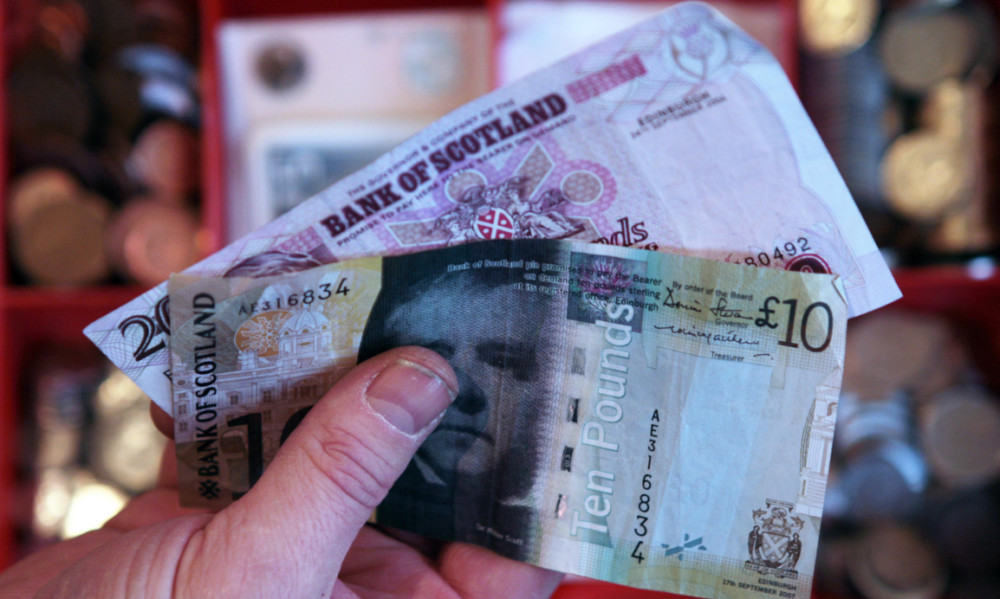Scotland’s historic banknotes could be scrapped in the event of independence, a UK Treasury report will say.
The Courier understands the paper, which will be published on Tuesday, will pose questions about the continued existence of Scottish banknotes in event of the Scottish Government’s preferred scenario of a currency union with the rest of the UK.
It is expected to say independence would fundamentally transform the role of the Bank of England.
As the central bank of the UK as a whole, it regulates how notes are issued by commercial banks to make sure Scottish currency is worth the same as its corresponding Bank of England banknotes.
In a formal sterling currency union, both the Scottish and the UK Governments would need to agree if the commercial banks in an independent Scottish state could continue to issue sterling banknotes.
However, the report will claim, the weaker political commitment of a currency union in the wake of a Yes vote may make the wider public across the rest of the UK less confident of the Scottish currency.
News of the report’s content emerged as Mr Osborne claimed the SNP “are tying themselves in knots” over plans to retain the pound in the event of a Yes vote and insisted a currency union could only work as part of a political and economic union.
In a joint article published on the UK Government’s Treasury website, Mr Osborne and his Treasury chief secretary, Danny Alexander, claimed the Scottish Government’s plan “did not add up”.
It says: “If Scotland does vote Yes on 18th September 2014, they (the SNP) say they want to hand, to what would become a foreign government, key decisions over the Scottish economy.
“This is one of the big contradictions in their whole economic approach. Campaigning to ‘bring powers home’ with one hand, while giving them away with the other.
“Calling for ‘full fiscal freedom’ with one breath, but calling for a ‘full fiscal pact’ with the next. It simply doesn’t add up.”
Economics experts in the Fiscal Commission Working Group, set up by First Minister Alex Salmond, have already concluded keeping sterling as the currency in an independent Scotland was “sensible” and an attractive choice for the rest of the UK.
Scotland’s Deputy First Minister Sturgeon said an independent Scotland using the pound would mean sterling’s balance of payments would be “massively boosted by Scotland’s huge assets, including North Sea oil and gas which alone swelled the UK’s balance of payments by £40bn in 2011-12.”
Pro-union campaign group Better Together last night revealed private research showing the currency consistently rates as one of the top three issues that people are concerned about in terms of the independence debate.
Ms Sturgeon added: “At present, the Scottish Parliament controls just 7% of Scotland’s revenue base, and that would only increase to 15% under the terms of the Scotland Act.
“With independence, Scotland will control 100% of our revenues, which is what it needs to be able to build a stronger economy and fairer society.
“The combination which only comes with independence of keeping the pound, accessing Scotland’s abundant resources, and taking decisions on tax and other economic policies that are right for Scotland, is the best way to boost jobs and growth.”
A Scottish Government spokesman said: “The existing situation relating to Scottish banknotes will remain in place within a post-independence currency union.
“An independent Scotland will retain the pound. The UK Government has stated that there is no legal bar to an independent Scotland having sterling as its currency and the evidence, including the views of world-leading economist Joseph Stiglitz, shows that it is in the best interests of both an independent Scotland and the rest of the UK to have a sterling zone.”
